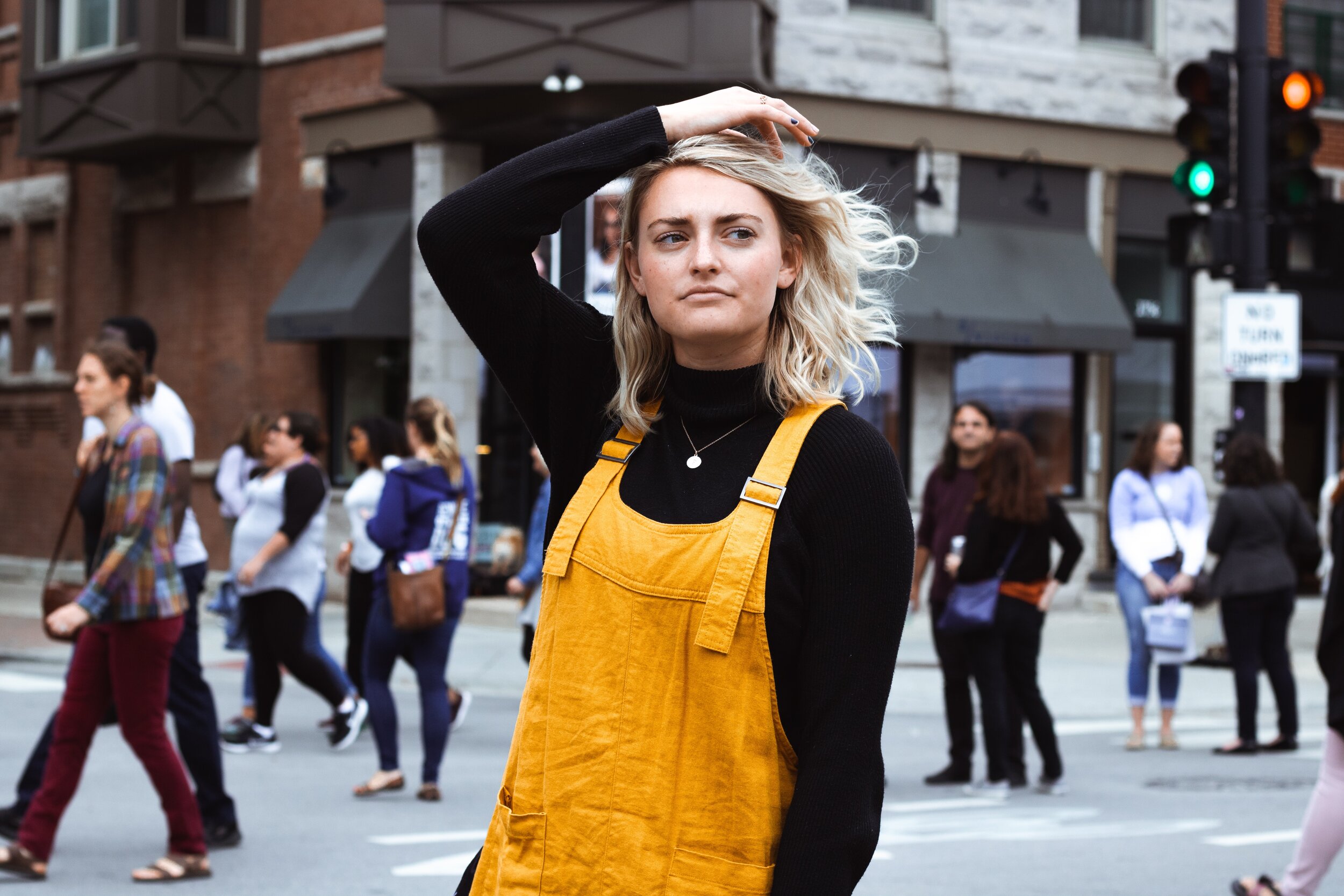Wouldn’t it be great if this world offered guarantees? How good would it be, for example, if you could go on a first date with someone knowing whether the relationship was going to go the distance or not? Or apply for a job knowing whether you’d get the role – and enjoy it – or miss out completely?
Alas, this world offers no guarantees – but that doesn’t stop us looking for them. This is called ‘control’ and it shows up in us monitoring and overanalysing a partner’s behaviour to get assurance that they’re going to stay loyal. Or, like my friend’s mother, stocking up your pantry with hundreds of cans of food ‘just in case’ (this is pre pandemic, BTW). The desire to seek out assurances might seem harmless enough, but it lulls us into a pattern of believing that we can only feel safe if we know how things are going to work out – which is neither possible nor helpful.
(Photo by Abby Savage on Unsplash)
It’s also worth pointing out that getting a guarantee wouldn’t provide the sense of security we think it will – not for long, anyway. Here’s an example from my own life. About 12 years ago, while working for a women’s magazine, I was commissioned to interview a psychic about their life. (This was a long time before I embarked on my own spiritual journey, incidentally). At this point in my life I was not in a great place emotionally. As I hopped out of the taxi, I remember thinking something along these lines: ‘If this stuff is legit, then can someone out there tell this person whether or not I’m ever going to find lasting love?’ I didn’t know who I was even talking to. I wasn’t familiar with angels then, I didn’t really believe in spirits and I’d long since broken up with institutional religion. It was a fleeting thought, not fully serious, and one that was immediately forgotten. About halfway through the interview, the psychic interrupted my questions and asked: “Are you engaged?” I had been single for approximately 3,783,942 years by this point. Feeling confused, I said “no”. With a knowing smile the psychic responded, “That’s interesting. I’m being shown an engagement ring for you.” Feeling confused and slightly uncomfortable, I brushed it off and continued with the interview.
It was only when I got back to the office that I made a connection between this experience and my earlier request, and realised what an incredible gift I’d been given by this psychic. I could let go of shame and regret about my dating history! I could put loneliness behind me! I could cancel dating website memberships! I could relax! Everything was going to work out for me!
This glorious feeling only lasted about six weeks. Why? Because my distress levels were so deep I *still* couldn’t trust that things were going to work out. This experience taught me that even when we do get reassurance, it doesn’t provide the lasting sense of safety we imagine it would. We are constantly doubting. This is the nature of being human. I have never seen a psychic since.
(Photo by Brittany Gisclair on Scopio)
Instead of looking for guarantees, and trying to control a world which largely cannot be controlled, a better approach is learning to make peace with the uncertainty. This is a long, slow process, and one I go in and out of. This does not, by the way, mean not controlling the things that you definitely *can* control – think: your decisions, your goals and your responses to situations. It just means accepting what cannot be changed. Certainly this pandemic has reinforced the importance of that message.
Here are some principles I come back to time and time again.
1. You don’t need to know how things are going to work out
(Photo by Reelika Raspel on Scopio)
You are safe right now – even though things are messy and chaotic. Maybe this is hard for you to accept because you didn’t have a lot of emotional safety growing up. Maybe you had a parent who was an alcoholic or emotionally volatile, and you spent your childhood walking on eggshells, trying to pre-empt the next blow-up. Maybe it’s hard for you to accept because you had unrealistic expectations about what it means to be human. If you were taught that ‘happily ever after’ was a reasonable expectation, the reality – that life is messy and confusing and sometimes super weird – could make you feel like maybe you’re doing life wrong. You’re not. The not-knowingness is simply what it means to have a beating heart.
2. You don’t need to know whether you’ll succeed or not
A major stumbling block for people who don’t do anything creative or have any hobbies is the belief they don’t have any talent for that activity. If you love painting but you aren’t likely to win an Archibald Prize anytime soon, so what? Do it anyway. Believing we have to be ‘good’ at something is a defence mechanism to avoid failure, disappointment or humiliation. This keeps us safe (maybe) but it also keeps us in a life of dissatisfaction. Success is not about being ‘good’, it’s about the meaning you get from that activity. We are born to create and enjoy our lives. Give new things a go without knowing how that will turn out – and if you love it, that’s reason enough to keep doing it.
3. You don’t need to feel 100 per cent ready before you start
Similar to the above, I meet many people who have brilliant ideas for businesses or projects, but they’re not moving forward until they feel ready. This is a noble goal, but not a terribly realistic one. As the actor Hugh Laurie reportedly (at least, according to Google) said: “I have this feeling that actually no one is ever ready to do anything. There is almost no such thing as ready.” Perfectionism and impossibly high standards are another way to avoid failure, disappointment and humiliation. They’re also standard MO for Virgos (just kidding – I love you, Virgos!). If there is something you really want to do, you need to learn to be OK with not having control over what will happen. Start anyway.
(Photo by Joseph Frank on Unsplash)
4. You don’t need the approval of other people to feel safe
Many years ago, a good friend of mine chucked in a very prestigious job with absolutely no plans for the next step. This scared her, but it scared the people around her even more. She was burned out and knew the role wasn’t right for her, but some of those in the industry who recognised the role’s value – and were clearly triggered – tried to talk her out of this decision. In this situations it was probably tempting to try and convince people to agree with, and support, her choice. But I really admire my friend for not trying to do this. She knew what was right for her, and rather than remain in a role that gave her a sense of security but eroded her mental wellbeing, she chose to step forward into uncertainty. There were no guarantees that things would work out for her (spoiler alert: they did! She retrained in a different industry and is now very contented). The takeaway: Be careful not to look for a sense of security or assurance in the perspectives of those around you. Just because others might be triggered by your choices, doesn’t mean they are wrong.
If you’d like to work with me to heal any of the issues in this article, you can book energy healing sessions here. More information about how I work is available here.





